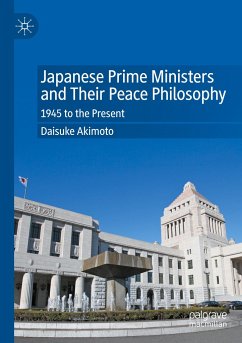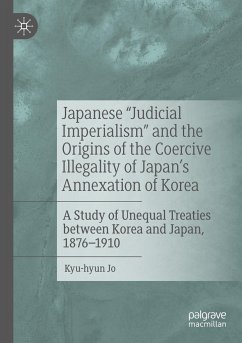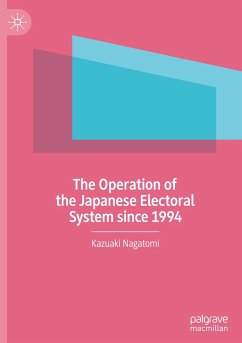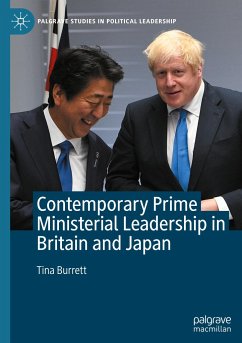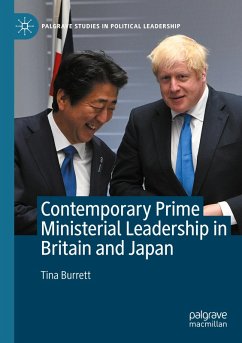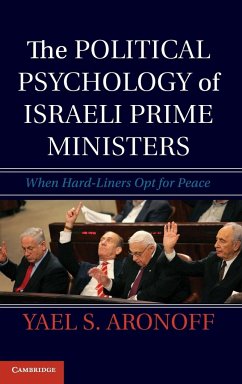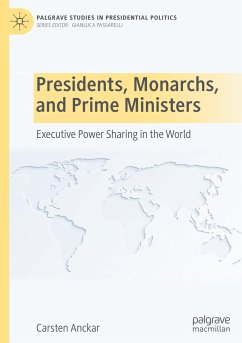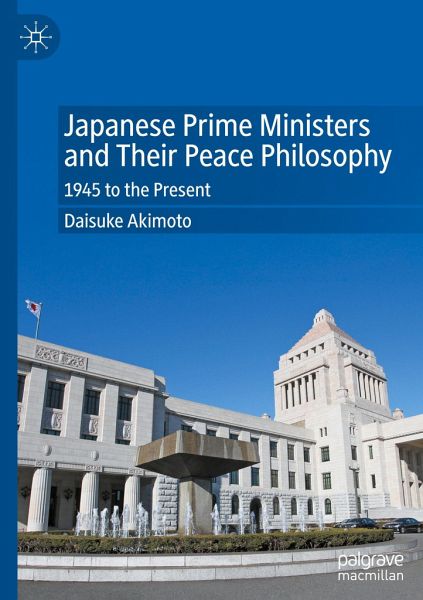
Japanese Prime Ministers and Their Peace Philosophy
1945 to the Present
Versandkostenfrei!
Versandfertig in 6-10 Tagen
91,99 €
inkl. MwSt.
Weitere Ausgaben:

PAYBACK Punkte
46 °P sammeln!
This book focuses on the lives and peace philosophy of Japanese prime ministers from 1945 to the present, attempting to extract one consistent political philosophy, namely, the 'peace philosophy' that has consistently influenced Japan's foreign and defense policy. Exploring the meta-narrative of international relations and politics, this book provides a new meta-analysis of the factors underpinning Japanese politics, providing a timely insight into one of Asia's most powerful yet enigmatic players in a time of transformation. This book will interest scholars of international relations, those w...
This book focuses on the lives and peace philosophy of Japanese prime ministers from 1945 to the present, attempting to extract one consistent political philosophy, namely, the 'peace philosophy' that has consistently influenced Japan's foreign and defense policy. Exploring the meta-narrative of international relations and politics, this book provides a new meta-analysis of the factors underpinning Japanese politics, providing a timely insight into one of Asia's most powerful yet enigmatic players in a time of transformation. This book will interest scholars of international relations, those watching Asia in transition, and journalists.



